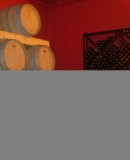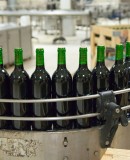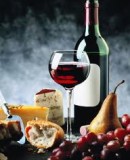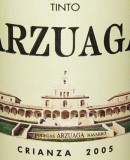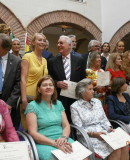Why Scoring Wine Is Pointless
WHY SCORING WINE IS POINTLESS
AJ Linn
(Originally published in Spanish in Diario Sur 13 July 2014)
Eric Asimov, long-time wine critic of the New York Times, has never been a fan of professional tastings. Nor of publishing tasting notes. Nor of descriptions like ‘wild berries’, ‘chocolate’, and ‘tobacco’. He claims he has never heard of someone buying a particular wine because they prefer chocolate to tobacco.
Asimov and I are in complete agreement, even if we are, or hopefully were until now, in the minority.
Robert Hodgson, a Californian winemaker who previously worked as a scientist, regularly entered his wines for competitive tastings. Sometimes they would get a gold medal or a high score, other times the same wine would be totally ignored. He decided that things were not quite right in the wine judging business and resolved to settle matters once and for all. Over a period of eight years, and with the collaboration of people involved in tastings and competitions, he conducted a series of scientifically-based experiments, the results of which have set the wine world back on its heels as never before.
By presenting tasters with the same wine more than once in a particular competition, something which of course they would never have anticipated, a wine initially given 90 out of 100 points would regularly be scored at, say, 94 at the second tasting, and 86 at the third. Tasters were notoriously inconsistent to the level that none of them could identify the ‘repeat’ wines as being the same as they had tried previously.
In non-blind tastings where the judges could see the bottles, a cheap wine served in an up-market bottle always ensured a higher score than the same wine presented in its original bottle. White wine tinted red with a tasteless dye was invariably classified as red.
When the difference of one point can make a financial difference to a wine’s retail sales and therefore profits for the producer, it must be concluded that it is utterly irresponsible to rate wines in such a random manner. The well-being of thousands of families working in the industry depends on these ‘experts’.
As further evidence of how outside influences can make a difference to scores, a 2008 study by Heriot-Watt University in Edinburgh showed that different music played during tastings can apparently play tricks on the palate. Scores increased by 60% for the cabernet sauvignon when Jimi Hendrix was played, and Kylie Minogue boosted chardonnay ratings.
A previous well-publicised French study showed tasters were unable to distinguish between expensive and cheap champagnes, and another published yesterday by Oxford University proved that even the most experienced professional tasters were often incapable of identifying grape varieties in blended wines.
From Robert Parker, through Robinson, Tanzer, Peñin, to the hundreds of prestigious international wine competitions held all over the world, the message is: Wine scoring is so scandalously haphazard that it should be considered merely as a fun pastime.
Never should a gold medal or high points be used as a marketing tool, since such awards are purely arbitrary and do not ensure that good wines go unnoticed, as is frequently claimed.
Worse, many judges and organisers of commercial tastings are aware of the failings of the system, but prefer to keep quiet so as not to upset the grape cart.
At long last those of us who have always argued that Parker & Co were wasting our time have been vindicated.
Disclaimer: The views, opinions and positions expressed within this guest article are those of the author AJ Linn alone and do not represent those of the Marbella Marbella website. The accuracy, completeness and validity of any statements made within this article are not guaranteed. We accept no liability for any errors, omissions or representations. The copyright of this content belongs to AJ Linn and any liability with regards to infringement of intellectual property rights remains with the author.















